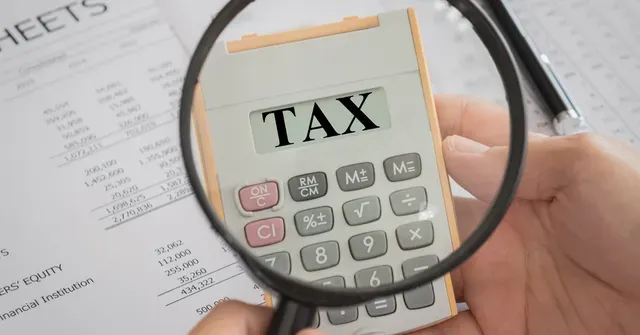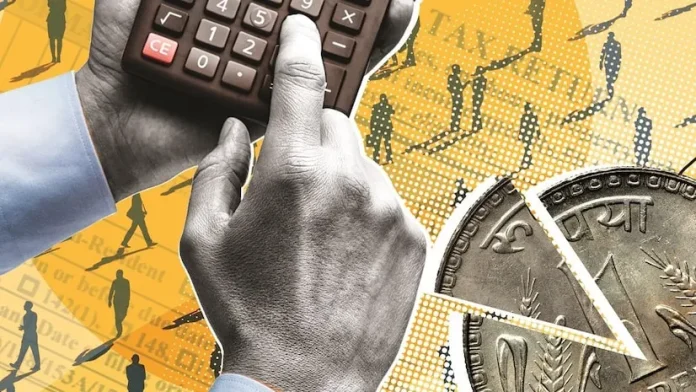The government has given a big relief to income taxpayers. In the Union Budget 2025, the Finance Minister announced to make income up to Rs 12 lakh per annum tax-free. If you do a private job, then you will not need to pay tax on a salary of up to Rs 17 lakh. For this, you will have to use certain special allowances, which are allowed by the Income Tax Department. For this, your salary structure will have to be changed.
In the new income tax regime, certain allowances are exempted from tax. There are certain conditions for this. According to the Economic Times report, Harsh Bhuta, partner of tax consulting firm Bhuta Shah & Co., says that there are certain allowances in the new regime that are not taxable. These can be availed by fulfilling the conditions related to them. However, for this, your salary structure will have to be changed. You can talk to your employer’s HR department about this.
Telephone and Mobile Bills
A person can claim exemption on telephone and mobile bill expenses provided by the employer. There is no limit for this. According to ET report, Yogesh Kale, Executive Director, Nangia Andersen LLP says that there is no limit for exemption on telephone and mobile bills in both the regimes. However, this amount should be practical. It should be according to the position and responsibilities of the employee. If mobile or internet bill is not included in your salary structure, then you can include it.

Transport allowances to disabled employees
Companies give transport allowance to Divyang employees. This does not come under the purview of tax. This allowance is given for travelling from home to office and office to home. According to ET report, Divyang employees get Rs 3,200 per month i.e. Rs 38,4000 annually as transport allowance, which does not come under the purview of tax.
Conveyance Reimbursement
This facility is provided by the employer to the employee to facilitate his work. This is different from the transport allowance. To avail this allowance, the employee has to submit the bill to the finance department of his office. If you want to avail this facility, then you will have to talk to the HR department of your employer.
Employer’s car lease policy
Many employers offer car lease facility to employees. Although it is considered as perquisite under income tax rules, its value is very low. In ET’s report, experts say that the perquisite value of a car given by the employer to the employee for personal and official use is very low. The valuation formula for this is the same in the new and old regime. If the engine capacity is less than 1.6 liters, then the taxable value of this perquisite will be Rs 1,800 per month. If the engine is of more power than this, the taxable value of the perquisite will be Rs 2,400.
| Components | Yearly (Basic Salary @ 30% of CTC) (in Rs) | Yearly (Basic Salary @ 40% of CTC) (in Rs) |
|---|---|---|
| Basic | 5,17,315 | 7,13,992 |
| HRA | 2,58,658 | 3,56,996 |
| Special Allowance | 4,99,027 | 2,04,011 |
| Mobile Reimbursement | 50,000 | 50,000 |
| Conveyance Reimbursement | 2,40,000 | 2,40,000 |
| Employer’s NPS Contribution | 72,424 | 99,959 |
| Gross Pay | 16,37,424 | 16,64,959 |
| Employer’s EPF Contribution | 62,078 | 85,679 |
| Gratuity | 24,883 | 34,343 |
| Total CTC | 17,24,385 | 17,84,981 |
In the new income tax regime, a standard deduction of Rs 75,000 is available. Apart from this, the employer’s contribution of up to 14 percent in NPS is not taxable. Similarly, the employee’s contribution of 12 percent in EPF is not taxable. In this way, if you use all these exemptions and deductions, then your salary up to Rs 17 lakh will become tax-free.
Related Articles:-
- Credit card usage benefits and side effects
- Toll Tax Cut: Big relief..! J&K High Court ordered to reduce the Toll tax on this Expressway, Check details
- Tax saving Scheme: You can Invest in THESE schemes for Tax Saving, You Have only 1 Month’s Time
- Bank Reduced Loan Interest Rates and also Waived Processing Fees – Know full Details
- Donald Trump announces ‘Gold Card’ US Visa: All You Need To Know













